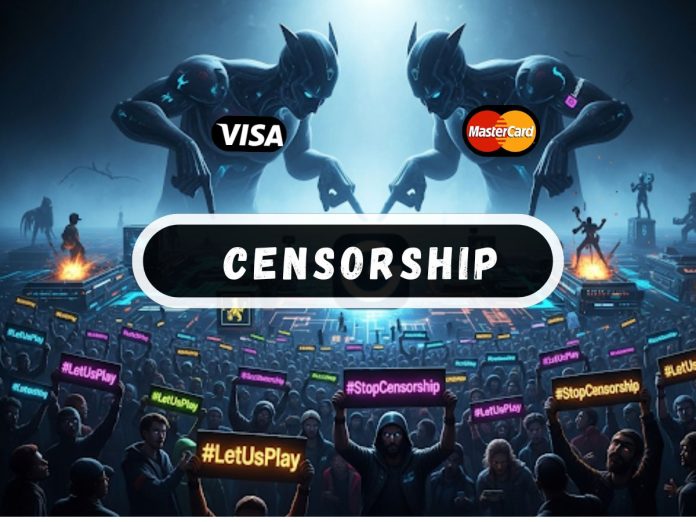The petitioner laid out four key demands:
- An end to the censorship of legal fictional content.
- Rejection of influence from activist groups that promote “moral panic.”
- Full transparency regarding the rationale behind content restrictions.
- The establishment of a fair appeal process for creators whose work is penalized.
Though many of the initial games banned on Steam were low-quality, the petitioners and their supporters are concerned about an escalation. The games targeted were mostly those considered to promote or encourage sexual violence or sexual manipulation.
This situation has reignited a debate about the immense, behind-the-scenes power that a few financial companies wield over online expression. Consumer advocates have long accused Visa and Mastercard of holding a virtual monopoly over the digital payment ecosystem, giving them the ability to act as de facto regulators.
The petition has been updated to protest against the age-verification restrictions introduced by platforms like YouTube, citing privacy concerns, as these verifications require government-issued IDs and photographs.
The influence of third-party activist groups has also come to media attention, as highlighted in our update earlier. A previous report by Vice Media journalist Ana Valens highlighted the role of the Australian group Collective Shout in pressuring payment processors.
This petition’s success in mobilizing over 205,000 signatories has undeniably cast a spotlight on the often-unseen forces shaping what content is allowed in the digital world. Whether the pressure will force the hand of these self-ordained regulators remains to be seen.
